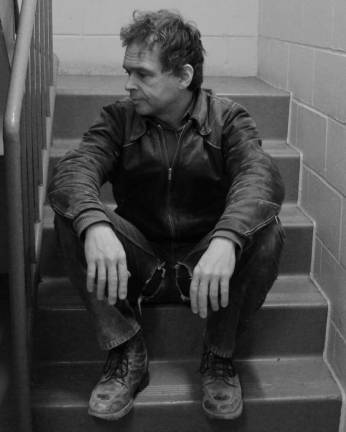Why Is It So Hot In Here?

A downtown building manager explains why you might be sweating in your apartment until May 31, despite rising spring temperatures By Sophia Rosenbaum New Yorkers' knowledge of how their heating systems work is minimal, and the lack of information often leads to a blame game ? tenants blame landords, landlords blame tenants and building managers blame both. But what is really at fault is the combination of antiquated heating systems, the desire for quick and cheap fixes and, of course, city regulations. "We continue to overheat our buildings for that one selfish tenant that likes to have their windows open or have an air conditioner during the winter," said Peter Marciano, a building manager in Manhattan. Marciano said tenants are disconnected from their heat because they don't pay the bills. It they did, he said they wouldn't keep their windows open or leave air conditioners in all winter long. Cue Henry Gifford, who can fix a leaky roof, a malfunctioning heat system or a broken boiler. He's been working as a handyman since 1982, and he's got the blackened, wrinkly hands to prove it. Gifford said understanding a building's heating system provides insight as to why apartments get so hot and how to fix the problem. New York buildings use one of three heating systems, each with drawbacks. When a boiler heats water into steam that moves through the pipes in an apartment, it is producing steam heat. It does not require electricity because heat rises naturally. "Overall, steam heat is a disaster," Marciano said. "It is either on or it's off and the building is either overheated or freezing or both." Hot-air heat blows air through tubes called ducts. "People like it because it's invisible," Gifford said, "but it's not practical to control temperatures individually to each room." Hot-water heat uses a boiler that heats water just below the boiling point. The water loops from the pipes to the radiators and back to the boiler. Prewar buildings require enormous pipes that are difficult to control. Modern systems used in postwar buildings use much smaller pipes. Hot-water heating systems provide the most control because they can be adjusted to outdoor temperatures, Gifford said. It's also easy to add a thermostat in apartments for better temperature control. Without thermostats in every apartment, controlling the temperature in a building is tricky. Factors like a building's age, height and heating system all contribute to the system's efficiency. (http://nypress.com/wp-content/uploads/2013/04/Rosenbaum.heat-feature.11.jpg)Between October 1 and May 31, The City Housing Maintenance Code requires building owners to heat apartments to 68 degrees Fahrenheit from 6 a.m. to 10 p.m.-if the temperature outside is below 55 degrees. From 10 p.m. to 6 a.m., buildings must be heated to 55 degrees-if it is below 40 degrees outside. Marciano, who manages about 20 properties downtown, said heating complaints always start the same. A tenant will call and say "I've had no heat all winter." If that was true, Marciano said he'd have over 200 phone calls from all his tenants. "The tenant is either lying, they want it warmer or there's something wrong with that unit," he said. Both Marciano and Gifford think the key to efficient heat is keeping the apartment airtight. Like every professional, they have a plan when they get that kind of call. "I look to see if people are wearing shorts and a T-shirt when they answer the door," Gifford said. "I stand across the street and see how many open windows they have in the winter." Overheating can occur for many reasons besides open windows and air conditioners. Bad boiler installations cause uneven heat distribution and covering an ugly radiator with a bookcase can impede a heating unit. Valves on radiators offer tenants some heat control, but they are often broken or painted shut. Many times, the outdoor sensor that controls the heating system is in the sun. "Those sensors get sun from about 7 until 8 every morning, which turns the heating system off just when people are getting out of the shower in the morning," Gifford said. "Then, they complain, the super turns the heat up and the building is overheated the other 23 hours of the day."